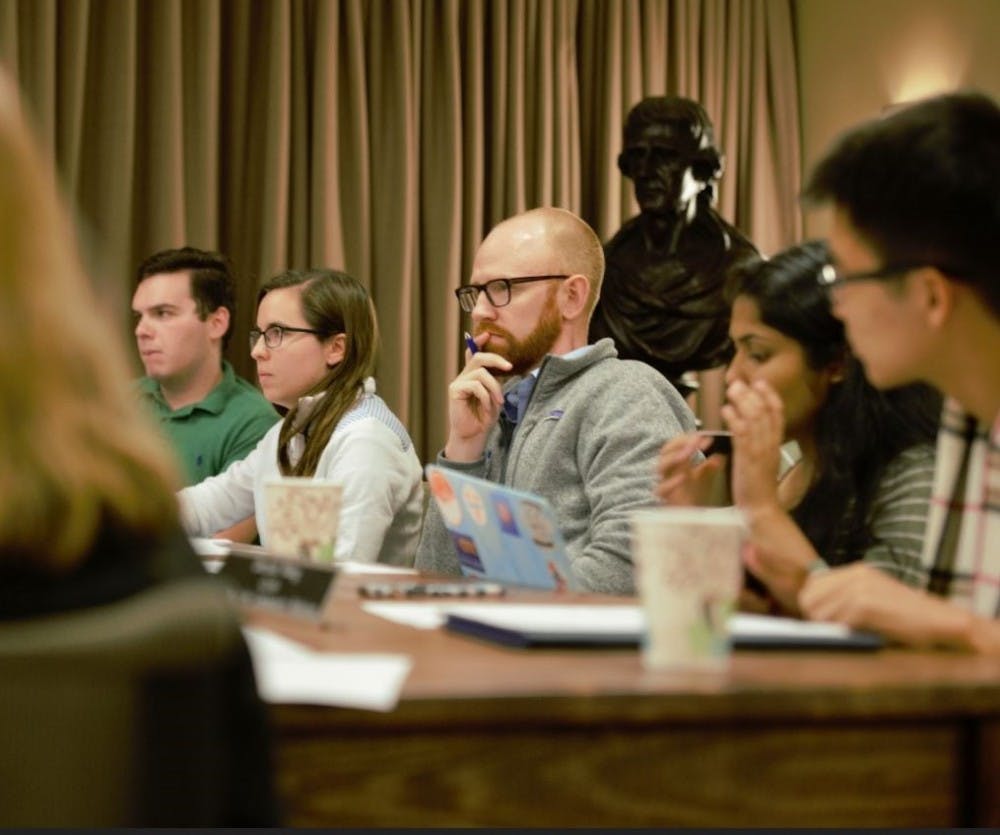The Honor Committee announced at its meeting Sunday that the body’s bylaws and constitution will be translated into Spanish as part of its ongoing translation effort to increase the accessibility of the Committee’s documents.
The Committee also announced the results of a Facebook ad campaign conducted by the body last month and the upcoming release of the Bicentennial Report — a summary of the Committee’s activities which will feature a five-year review of the Informed Retraction.
An Informed Retraction enables a student who has been reported to the Committee for an alleged instance of lying, cheating or stealing to assume responsibility for the offense and subsequently make amends for it by admitting guilt to the offense and then taking a two-semester leave of absence from the University.
The Spanish translation of the Honor Committee constitution will be the latest in a series of other translations of Honor documents in French and Chinese available on its website. The translations were done by students from the Latinx Student Alliance and were proofread by a professor from the Medical school.
“With the wider and wider percentage of our students coming from other countries and different backgrounds, it’s really important that we have our constitution especially translated into other languages,” said Derrick Wang, a third-year College student and the vice chair for community relations.
Wang also noted that while the majority of University students are fluent in in English, the Spanish translation would be valuable “especially for students who are trying to communicate this information to family or relatives.”
At Sunday’s meeting, Julia Batts, a fourth-year Engineering student and vice chair for education, also presented a summary of an ad campaign the Committee ran on Facebook from Aug. 31 to Sept. 8. The ads were targeted at University undergraduate students, using age limits and location software from Facebook to avoid showing ads to visitors to the University or local residents.
The ads were limited to Facebook users between 17 and 22 years old who liked a page related to the University and were within one mile of the Lawn. The ads were intended to supplement support officer recruitment efforts being conducted by the Honor Committee by expanding its reach beyond just those events which the Committee held for the purpose of recruitment.
Support officers aid the Honor Committee in investigating cases, working with students accused of Honor offense and carrying out outreach for the body as well.
The summary also concluded that the ads were disproportionately displayed to females. The distribution was approximately 70 percent female and 30 percent male. The ads reached approximately 2,334 women and 968 men.
“We tried to limit it to undergraduates, ideally not catching anyone who’s visiting or from local high schools in the area,” Batts said.
The ad campaign reached 3,310 people, with ads showing up on each person’s timeline an average of four times. The Committee was satisfied with the public relations campaign, even if it may not have yielded actual support officer recruits. Honor accepted 54 new support officers last week, including 10 graduate students.
The Committee spend a total of $132.99 on the ad campaign at approximately one cent per hit.
“That’s money well spent,” said Ory Streeter, a Medical student and Honor Committee chair. “I think that’s a pretty good return on our investment.”
The Committee also announced the future release of a Bicentennial Report, to be released in the spring of 2019. The report will feature a review of the Informed Retraction, five years after its introduction. The report will also be combined with an online presence, which the University’s Information Technology Services is helping to create.
“What’s it's going to do is kick off our Honor Week, and hopefully do some education and outreach,” Streeter said.







